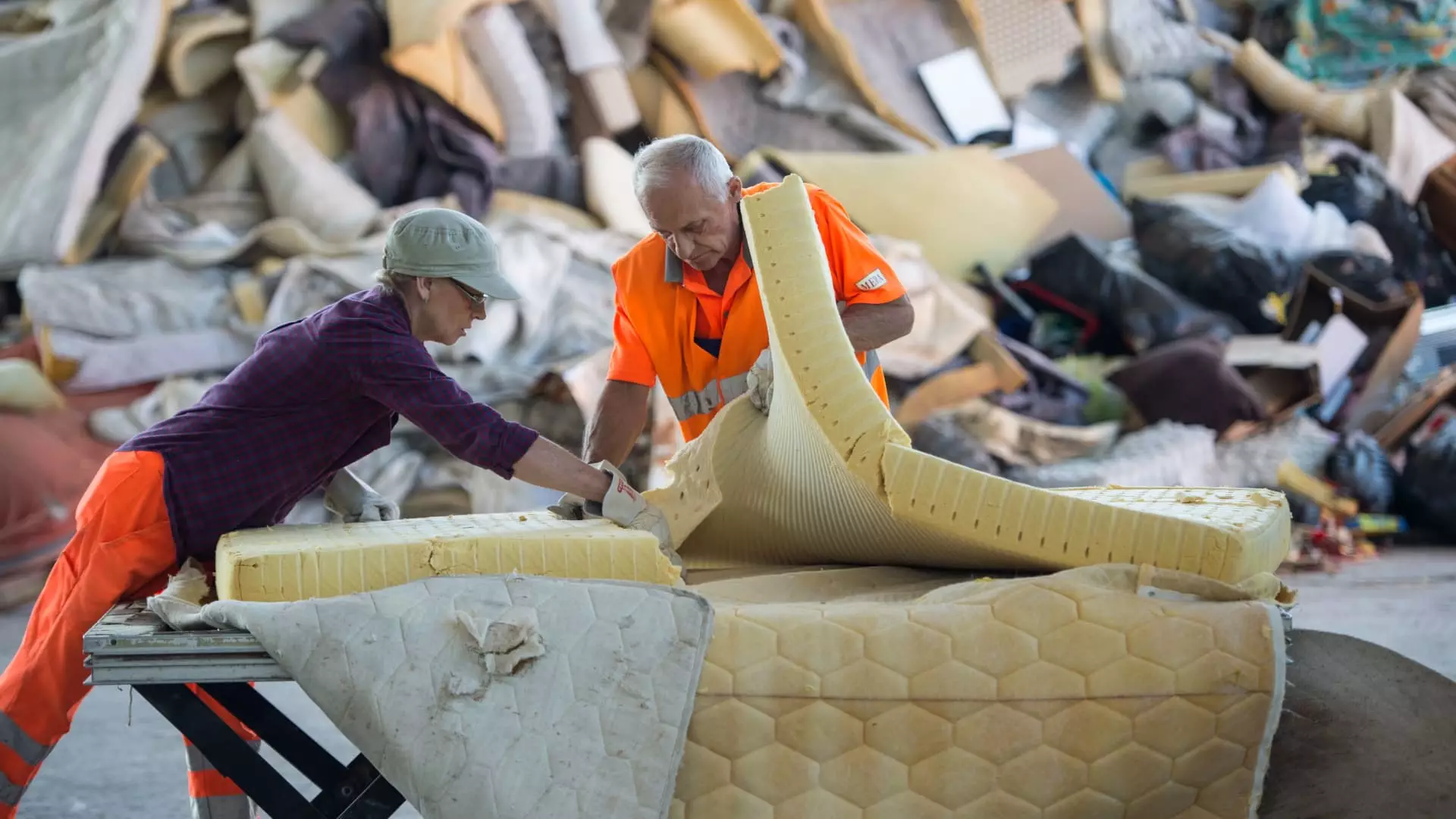In recent years, the environmental sustainability movement has gained significant traction, prompting states across the U.S. to take bold actions to reduce waste and promote recycling. One notable initiative is the mattress recycling fee imposed in several states, specifically California, Connecticut, Oregon, and Rhode Island. This policy not only aims to mitigate the environmental impact of discarded mattresses, but it also reflects a broader effort to foster a circular economy, where materials are reused and repurposed rather than discarded.
Every year, Americans dispose of an estimated 15 to 20 million mattresses, resulting in approximately 50,000 units being thrown away daily. This statistic highlights a significant waste management issue, especially considering that over 75% of a mattress can be recycled. Components such as wood, steel, foam, and fibers are not only recyclable but also valuable resources that can be repurposed for various applications. The Mattress Recycling Council (MRC), established by the industry itself, recognized this gap in recycling opportunities, leading to the introduction of state-level recycling programs designed to address the growing problem of mattress disposal.
The consumer recycling fee, which varies between $16 to $23 in the states implementing this policy, serves as a funding mechanism for recycling operations. In Oregon, for example, the recently introduced stewardship assessment of $22.50 per mattress is directed towards ensuring that consumers have easy access to recycling facilities. The goal is to create multiple drop-off locations for residents throughout the state, thereby reducing the incidence of illegal dumping and promoting responsible disposal practices.
California and Connecticut have also raised their fees, demonstrating a commitment to improving their recycling infrastructure over time. Rhode Island’s increased fee is part of a broader trend among states that recognize the need to advance sustainability initiatives.
This mattress recycling initiative is an example of Extended Producer Responsibility (EPR), a policy approach where manufacturers take responsibility for the lifecycle of their products. Reid Lifset, a prominent figure in industrial ecology, emphasizes that EPR provides a sustainable source of funding for recycling programs. In states like Oregon, the fees collected from consumers are funneled into operational costs, education programs, and the establishment of more recycling facilities.
The MRC has collaborated with retailers to facilitate the efficient collection and recycling of mattresses. Unlike states without recycling laws, which often impose steep fees for mattress pickup, EPR-backed states have made substantial strides towards making recycling easier and more accessible for the average consumer. Oregon’s program, for instance, is designed not only to enhance recycling rates but also to create jobs within the recycling sector, contributing further to economic sustainability.
Despite these advancements, challenges remain. In states without implemented recycling fees, consumers often face limited recycling options and high costs for disposal services, which can dissuade responsible waste management practices. A mere 58 recycling companies nationwide highlight the inadequacies in the current system. Expanding the mattress recycling network is critical, and ongoing discussions in states like Massachusetts, Maryland, New York, and Virginia indicate a recognition of the need for similar programs.
As states move forward with these initiatives, it is essential to raise public awareness about the importance of recycling and the environmental benefits it can yield. Comprehensive education and outreach programs can help inform residents about available resources, making recycling not just a possibility but an expectation.
The mattress recycling fees in various states symbolize a pivotal step towards enhancing sustainability in consumer habits and mitigating the waste crisis. By promoting a circular economy and implementing EPR, these states are not just addressing the disposal of mattresses but also inspiring a cultural shift towards environmental responsibility. As more states examine the potential for similar recycling initiatives, the hope is that mattress waste will significantly decrease, leading to cleaner landfills and a healthier planet for future generations.

